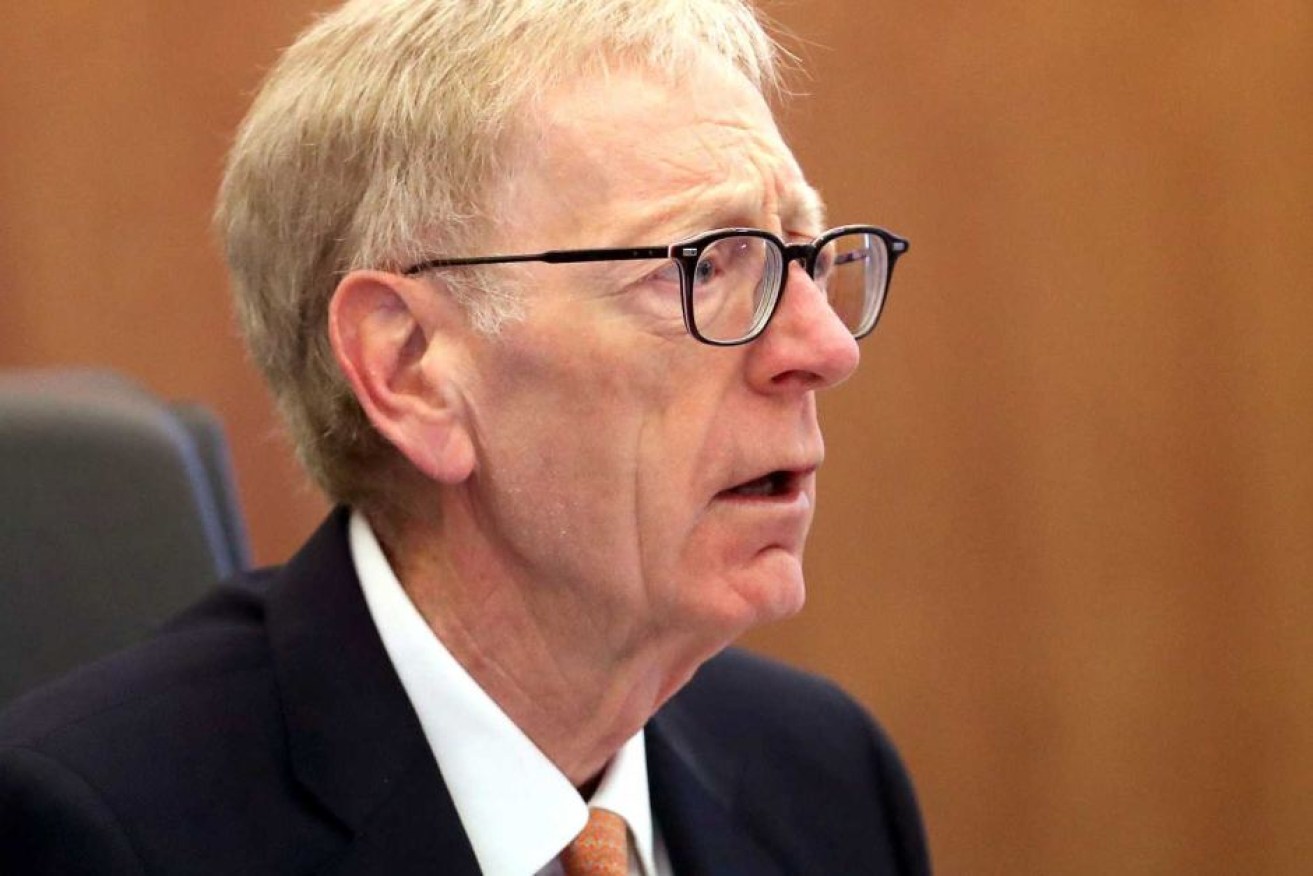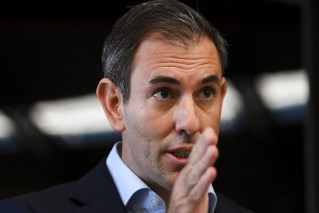One year on from Hayne’s findings, are our banks really any better?
The Hayne royal commission dragged through the shock and gore of banking industry scandals in 2018.

Kenneth Hayne made 76 recommendations in his report released on February 4, 2019. (AAP: David Geraghty)
It was a tough examination for Australia’s banks, insurers and financial services companies.
Even harder was swallowing the medicine prescribed by the final report in February 2019.
A year since the commissioner, Kenneth Hayne, dropped 76 bombshell recommendations to fix the industry, there has been immense upheaval.
Billions of dollars of stolen money is being returned to customers, multiple court cases are underway and only one of the bosses of the big four banks has passed the milestone of two years in the top job.
“I actually think a lot has changed,” chief executive of Financial Counselling Australia Fiona Guthrie said.
“There’s been millions of dollars of compensation, the banks have stopped selling poor products that were really low value, they have simplified their products, improved complaint handling and I think we’re, more importantly, probably seeing more appropriate culture and an ethical bedrock in the industry”.
Hayne’s final report laid the groundwork for change
For consumers, plenty of good things have flowed from the shock delivered by the final report:
- Financial regulators the Australian Securities and Investments Commission (ASIC) and Australian Prudential Regulation Authority (APRA) are revved up, and now ask, “why not litigate?” when considering breaches of the law. Both watchdogs are prosecuting civil and criminal cases they would not have previously bothered to take to court. The Commonwealth Bank, for example, pleaded guilty to 87 criminal counts of ‘hawking’ life insurance in unsolicited phone calls;
- Banks are now automatically transferring vulnerable customers to low-fee and fee-free accounts. They do not make people aware when they are stuck in a dud home loan, but banks deserve credit for killing off unsolicited overdraft offers, charging dishonour fees on basic accounts and simplifying the products they offer;
- Superannuation fund trustees and directors who do not act in the best interests of members now face civil penalties. They are also banned from wining and dining employers to shift their employees’ accounts;
- Legislation is coming to outlaw unfair contract terms in insurance and provide more transparency for customers;
- About $1.5 billion in remediation has already been returned to customers, and the total is expected to hit $10 billion.
Banks still working to rebuild trust
Last week the chief executive of the Commonwealth Bank, Matt Comyn, said there was no question that the trust and reputation of the industry had been eroded substantially.
“So rebuilding that is extremely important,” he said.
Anna Bligh, the former Queensland premier and now head of the Australian Banking Association, agreed.
“I think the public want to know there were consequences,” she said.
“And I think, if you’re fair, you’d say that over the last 12 months there are a lot of people in the banking industry that have personally felt consequences.”
When the banks buckled to mounting political pressure in November 2017, the chairs and chief executives of each of the big four banks signed an extraordinary letter calling on the Federal Government to bring on a royal commission.
Just two years later, only three of those eight people remain in their roles.
But there is still a lot of work to be done.
Legislation to make Kenneth Hayne’s recommendations law still has to pass Parliament, and some of the bills will not be introduced until the end of the year.
The Government decided not to ban commissions in the mortgage broking industry — something that the commissioner had singled out as “money for nothing” — or increase protections for small business loans.
Scandals continue to pile up, as over-worked regulators scramble to deal with scores of cases referred to them to investigate and prosecute.
More big names could be taken to court
Financial Counselling Australia’s Guthrie is across the scope of the banking industry, having met everyone from bank bosses to people in financial distress.
She said the new bank bosses understood the need for change across the industry, but she also remained concerned that memories of the royal commission will fade.
“I have no doubt under their current leadership in the banking industry that the changes are going to stick,” she said.
Customers could see the results is in court.
Watchdogs ASIC and APRA took both minnows and big fish — including the Commonwealth Bank and the bosses of fund management giant IOOF — to court last year, with mixed results.
Swinburne University corporate governance expert Helen Bird said to expect more big names forced to front court.
“At this stage I think about half a dozen matters, of which there were probably three that are quite high profile, and the rest you probably wouldn’t describe in the same sentence,” Bird said.
But do not expect swift justice.
“And of course it depends very much on the size of the matter and the complexity of the matter.”
So the pain will continue for Australia’s banks, at least for the next few years.
-ABC












